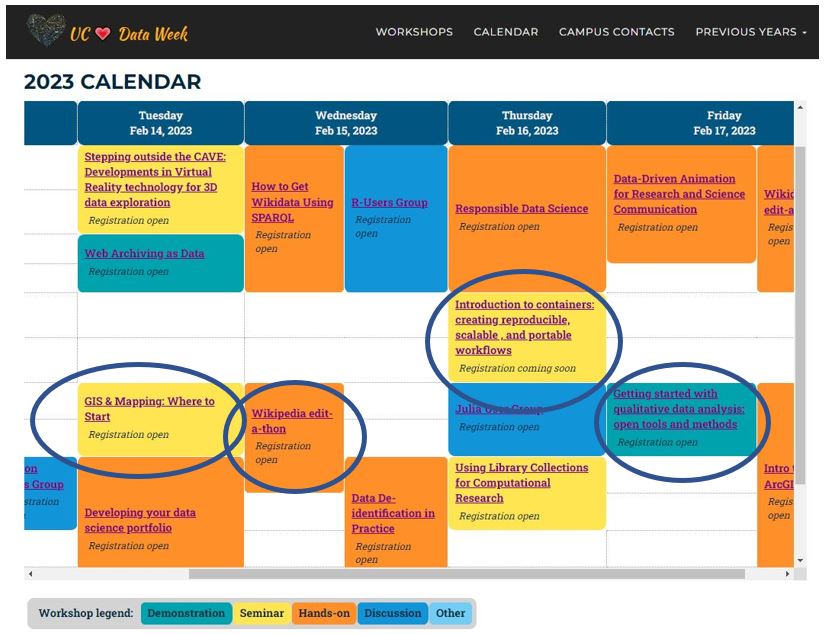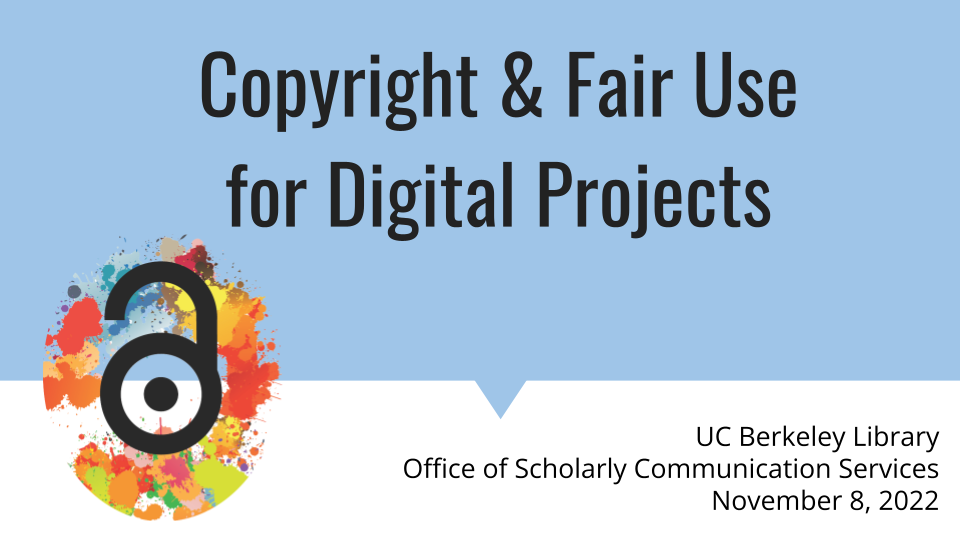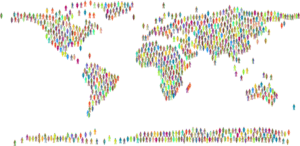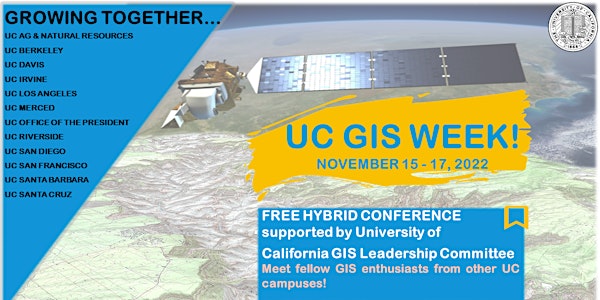Data & Digital Scholarship
Workshop: Publish Digital Books & Open Educational Resources with Pressbooks
Publish Digital Books & Open Educational Resources with Pressbooks
Wednesday, February 8th, 11:10am-12:30pm
Online: Register to receive the Zoom link
Tim Vollmer
If you’re looking to self-publish work of any length and want an easy-to-use tool that offers a high degree of customization, allows flexibility with publishing formats (EPUB, PDF), and provides web-hosting options, Pressbooks may be great for you. Pressbooks is often the tool of choice for academics creating digital books, open textbooks, and open educational resources, since you can license your materials for reuse however you desire. Learn why and how to use Pressbooks for publishing your original books or course materials. You’ll leave the workshop with a project already under way! Register here.
Upcoming Workshops in this Series – Spring 2022:
- Can I Mine That? Should I Mine That?: A Clinic for Copyright, Ethics & More in TDM Research
- By Design: Graphics & Images Basics
- HTML/CSS Toolkit for Digital Projects
Please see bit.ly/dp-berk for details.
Come Help Us Create Wikipedia and Create Change, Edit by Edit, on February 15, 2023!

Wikipedia has become so central to our lives that we count on it to represent reality, and solid fact. When we encounter a new phenomenon, we check out our trusty online friend for more information. So, it was fascinating to me recently to see the lines blur between fiction and reality, when Wikipedia was used as a visual and social cue in the movie Tár, starring Cate Blanchett, about a famed female conductor. In the movie, one of the clues to the coming turbulence in Lydia Tár’s life is a screen capture of a mystery editor changing items on the conductor’s Wikipedia entry. It looked and felt so real, the filming and Blanchett’s performance so rivetingly vivid, that many people believed the film was a biopic of a real person. As Brooke LaMantia wrote in her article, No, Lydia Tar is Not Real,
“When I left the theater after watching Tár for two hours and 38 minutes, I immediately fumbled for my phone. I couldn’t wait to see actual footage of the story I had just seen and was so ready for my Wikipedia deep dive to sate me during my ride home. But when I frantically typed “Lydia Tar?” into Google as I waited for my train, I was greeted with a confusing and upsetting realization: Lydia Tár is not real…the film’s description on Letterboxd — “set in the international world of classical music, centers on Lydia Tár, widely considered one of the greatest living composer/conductors and first-ever female chief conductor of a major German orchestra” — is enough to make you believe Tár is based on a true story. The description was later added to a Wikipedia page dedicated to “Lydia Tár,” but ahead of the film’s October 28 wide release, that page has now been placed under a broader page for the movie as a whole. Was this some sort of marketing sleight of hand or just a mistake I stumbled upon? Am I the only one who noticed this? I couldn’t be, right? I thought other people had to be stuck in that same cycle of questioning: Wait, this has to be real. Or is it? She’s not a real person?
Wikipedia is central to LaMantia’s questioning! While it’s easy to understand people’s confusion in general, the Tár Wikipedia page, created by editors like you and like me, is very clear that this is a film, at least as of today’s access date, January 20, 2023… On the other hand, did you know you can click on the “View History” link on the page, and see every edit that has been made to it, since it was created, and who made that edit? If you look at the page resulting from one of the edits from October 27, 2022, you can see that it does look like Tár is a real person, and in fact, a person who later went on to edit this entry to make it clearer wrote, “Reading as it was, it is not clear if Lydia actually exists.” Maybe I should write to LaMantia and let her know.
I tell this story to show that clearly, Wikipedia is a phenomenon, and a globally central one, which makes it all the more amazing that it is created continuously, edit by edit, editor by editor. There are many ways in which our own and your own edits can create change, lead to social justice, correct misinformation and more. While it’s easy to get lost in the weeds of minute changes to esoteric entries, it’s also possible to improve pages on important figures in real-life history and bring them into our modern narrative and consciousness. And it’s easy to do!
If you are interested in learning more, and being part of this central resource, we warmly welcome you and invite you to join us on Wednesday, February 15, from 1-2:30 for our 2023 Wikipedia Editathon, part of the University of Calif0rnia-wide 2023 Love Data Week. No experience is required—we will teach you all you need to know about editing! (but, if you want to edit with us in real time, please create a Wikipedia account before the workshop). The link to register is here, and you can contact any of the workshop leaders (listed on the registration page) with questions. We look forward to editing with you!
Coming Soon: Love Your Data, from Editathons to Containers!
UC Berkeley has been loving its data for a long time, and has been part of the international movement which is Love Data Week (LDW) since at least 2016, even during the pandemic! This year is no exception—the UC Berkeley Libraries and our campus partners are offering some fantastic workshops (four of which are led by our very own librarians) as part of the University of California-wide observance.
Love Data Week 2023 is happening next month, February 13-17 (it’s always during the week of Valentine’s Day)!

UC Berkeley Love Data Week offerings for 2023 include:
Wikipedia Edit-a-thon (you can also dip into Wikidata at other LDW events)
Textual Analysis with Archival Materials
Getting Started with Qualitative Data Analysis
All members of the UC community are welcome—we hope you will join us! Registration links for our offerings are above, and the full UC-wide calendar is here. If you are interested in learning more about what the library is doing with data, check out our new Data + Digital Scholarship Services page. And, feel free to email us at librarydataservices@berkeley.edu. Looking forward to data bonding next month!
Workshop Reminder—Copyright & Fair Use for Digital Projects

Workshop Date/Time: Tuesday, November 8, 2022, 11:00am–12:30pm
RSVP for Zoom link
Please sign up today and join us on November 8.
Workshop: Copyright and Fair Use for Digital Projects
Copyright and Fair Use for Digital Projects
Tuesday, November 8th, 11:10am – 12:30pm
Online: Register to receive the Zoom link
Tim Vollmer
This training will help you navigate the copyright, fair use, and usage rights of including third-party content in your digital project. Whether you seek to embed video from other sources for analysis, post material you scanned from a visit to the archives, add images, upload documents, or more, understanding the basics of copyright and discovering a workflow for answering copyright-related digital scholarship questions will make you more confident in your publication. We will also provide an overview of your intellectual property rights as a creator and ways to license your own work. Register here
Please see bit.ly/dp-berk for details.
UC GIS Week 2022: Registration now open!
Register now for the UC GIS Week conference from Nov. 15th – 17th!
The University of California GIS Week is an opportunity for you to learn and engage with experts and mapping projects across the UC system and beyond!
This free hybrid conference is supported by the UC GIS Leadership Committee. In addition to many virtual talks and workshops, keep an eye on the schedule for in-person events happening around the UC Berkeley campus.
Workshop: The Long Haul: Best Practices for Making Your Digital Project Last
The Long Haul: Best Practices for Making Your Digital Project Last
Tuesday, October 25th, 11:10am – 12:00pm
Online: Register to receive the Zoom link
Scott Peterson & Erin Foster
You’ve invested a lot of work in creating a digital project, but how do you ensure it has staying power? We’ll look at choices you can make at the beginning of project development to influence sustainability, best practices for documentation and asset management, and how to sunset your project in a way that ensures long-term access for future researchers. Register here
Upcoming Workshops in this Series – Fall 2022:
- Copyright and Fair Use for Digital Projects
Please see bit.ly/dp-berk for details.
GIS & Mapping Community of Practice meetup on Oct. 17
Join us for the next campus GIS & Mapping Community of Practice meetup on October 17 from 2-3 pm! This month’s meetup will take place virtually on Zoom. Register to receive the link.
 This informal meetup offers participants an opportunity to get to know other people using mapping tools and techniques across campus, regardless of discipline. Whether you’re just getting started exploring GIS & Mapping or a seasoned pro (or anywhere in between!), all are welcome to participate in the GIS & Mapping Community of Practice. Bring your questions and get excited to meet fellow mappers!
This informal meetup offers participants an opportunity to get to know other people using mapping tools and techniques across campus, regardless of discipline. Whether you’re just getting started exploring GIS & Mapping or a seasoned pro (or anywhere in between!), all are welcome to participate in the GIS & Mapping Community of Practice. Bring your questions and get excited to meet fellow mappers!
Let us know if you’re interested in sharing this month (or at a future meetup) during our community “show and tell,” and also what topics you’re interested in learning about, by completing the GIS & Mapping Community of Practice Interest Form.
Workshop: Creating Web Maps with ArcGIS Online
Creating Web Maps with ArcGIS Online
Thursday, October 13th, 11:10am – 12:30pm
Online: Register to receive the Zoom link
Susan Powell
Want to make a web map, but not sure where to start? This short workshop will introduce key mapping terms and concepts and give an overview of popular platforms used to create web maps. We’ll explore one of these platforms (ArcGIS Online) in more detail. You’ll get some hands-on practice adding data, changing the basemap, and creating interactive map visualizations. At the end of the workshop you’ll have the basic knowledge needed to create your own simple web maps. Register here
Upcoming Workshops in this Series – Fall 2022:
- The Long Haul: Best Practices for Making Your Digital Project Last
- Copyright and Fair Use for Digital Projects
Please see bit.ly/dp-berk for details.
University of California Research Data Policy: a few things to know
University of California Research Data Policy: a few things to know
The University of California Office of the President recently announced an updated Research Data Policy, effective July 15, 2022. The new policy complements the original policy from 1958. It re-confirms that research data are owned by the University but outlines how University Researchers may use the data generated or collected in the course of their research. While most researchers likely will find that the updated policy doesn’t require a complete overhaul of their data stewardship practices, it’s important to understand key terms, conditions, and permissions enabled by the new policy. The policy, however, will help them make decisions around management, retention, data publication, and data transfer. Implementation of this policy at a campus level is currently under development. Additional details are forthcoming.
A few key points:
- The Regents of the University of California own Research Data generated or collected in the course of University Research.
- Research Data include “recorded information embodying facts resulting from a scientific inquiry.” Research Data do not include scholarly & aesthetic works, informal notes, paper drafts, administrative or medical records, and other materials (see policy text for complete list).
- University Research means “research conducted by a Principal Investigator or University Researcher that is within the course and scope of their assigned duties, uses University resources, and/or is funded by or through the University.”
- University Researchers may use the Research Data they generate or collect in order to conduct other research, share with collaborators, publish outcomes, and create scholarly works. The University “supports the free and unfettered dissemination of information, knowledge, and discoveries generated by University Researchers.” As such:
-
- Principal Investigators (PIs) are the stewards of Research Data, and maintain autonomy about which data should be preserved or dispositioned;
- Researchers may share data as dictated by scholarly/disciplinary standards or data management plans, or legal, funder, or contractual requirements;
- When a University Researcher leaves the UC, they may take copies of the data they generated or collected, as long as it is approved by the PI;
- Neither the University nor University Researchers may assert ownership of Research Data owned by third parties.
Resources and Assistance:
- Please check out Frequently Asked Questions from UCOP.
- Blog post from UCOP: Why the UC Research Data Policy is Important
- When a PI leaves UC Berkeley, the data may be transferred in accordance with local process and a copy may be required to stay at UC Berkeley in the event that other researchers need to continue working on it. For questions about data management and data transfer: Research Data Management Program (researchdata@berkeley.edu)
- For questions about data publication and retention: Library Data Services Program (librarydataservices@berkeley.edu)
- For questions about how the Research Data Policy relates to the Copyright Ownership Policy: Office of Scholarly Communication Services
Written by Tim Vollmer, Erin Foster, and Anna Sackmann

